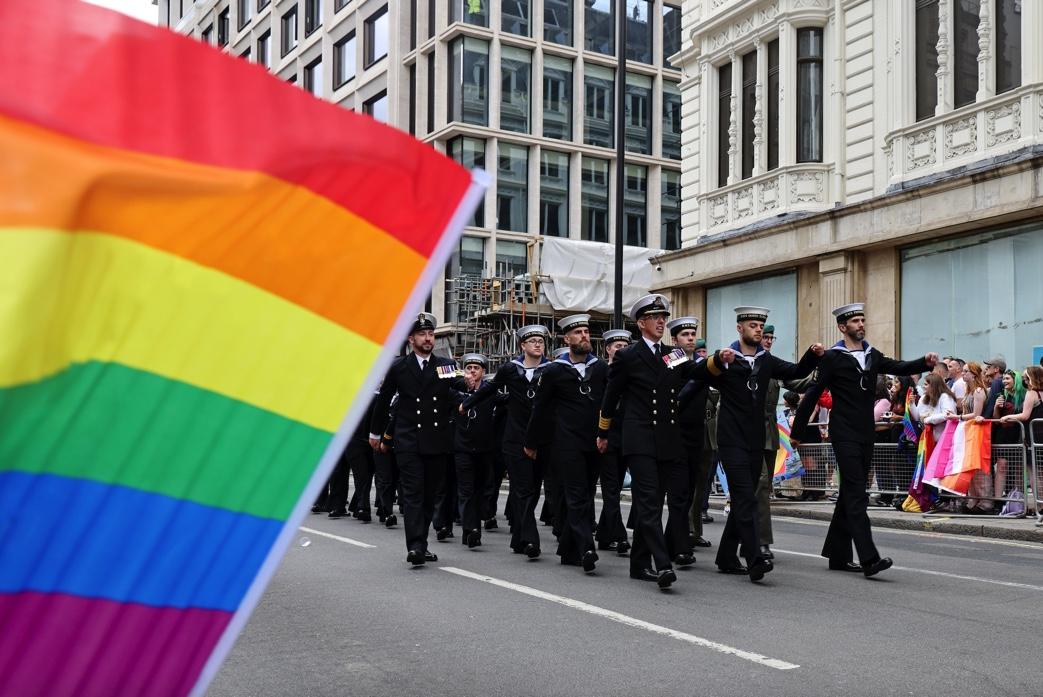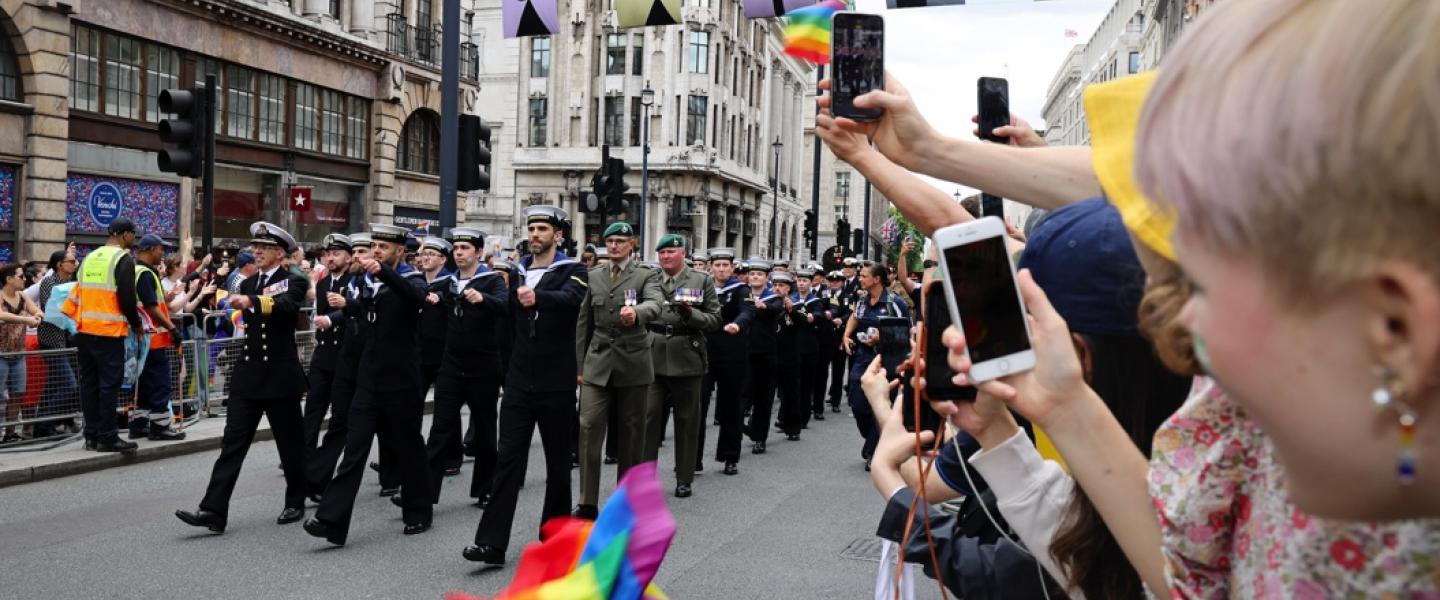Until 1999, if you were gay, lesbian, bisexual, or transgender, you were banned from serving in the British Armed Forces. If you were suspected to be anything other than "straight", you were intensely questioned and sometimes subjected to distressing medical inspections.
People lost their careers, relationships and pensions and were ordered never again to use their military rank or wear their uniform.
Some even served time behind bars due to the military criminal offence of being homosexual.
The ban on homosexuals serving in the armed forces was only lifted in January 2000 - decades after being gay was decriminalised by the Sexual Offences Act of 1967
"Casual racism, sexism and homophobia was the norm." - Chief Petty Officer Kirsty Fletcher (Royal Marine and Royal Navy Veteran)
Fast forward to 2022, and thankfully attitudes towards the LGBTQ+ community have changed and are an increasing norm in Service life.

To mark Human Rights Day 2022, Human Rights at Sea has collaborated with Serving Officer and Advisory Board member Commander Samantha Kinsey-Briggs MBE MA Royal Navy. Through lived experience and journeys, "Turning the Tide on LGBTQ+ Culture in the Royal Navy Since 2000" aims to look at lessons we might learn, from a cultural perspective, after the ban on LGBTQ+ personnel serving in the British Armed Forces was lifted. The intention is to focus on the culture within the Royal Navy and how it has developed over the last 22 years.
Key lessons include the critical nature of senior leadership and their support in driving policy change, demonstrating their commitment by living and breathing the policy and remembering and celebrating those who have fought for the changes.
Homosexuality remains illegal in 69 countries and is punishable by death in 11. More than one in three LGBTQ+ people in the UK report having suffered abuse because of their sexuality or gender.
People who identify as LGBTQ+ often face double discrimination. Stigma from their crewmates, and, depending on the flag state of the vessel, they may be committing a crime by simply being gay at sea.
Whilst there is always more to be done, and prejudice remains, professional competency and changing culture are winning.
Human Rights at Sea will continue to be allies to the LGBTQ+ community. We will lobby for change, engage with stakeholders, and expose those who fail to protect people and will remain to bring problems to the public's attention. We will provide guidance and information to victims who need justice.
Photo credit: Leading Photographer Chris Sellars Royal Navy
Contact: Charlotte Rumbol, Communications Manager and Project Officer: charlotte.rumbol@humanrightsatsea.org
About Sharing. We welcome the use and dissemination of our work with proper accreditation. Please ensure that our Terms of Use are conformed with at all times.
